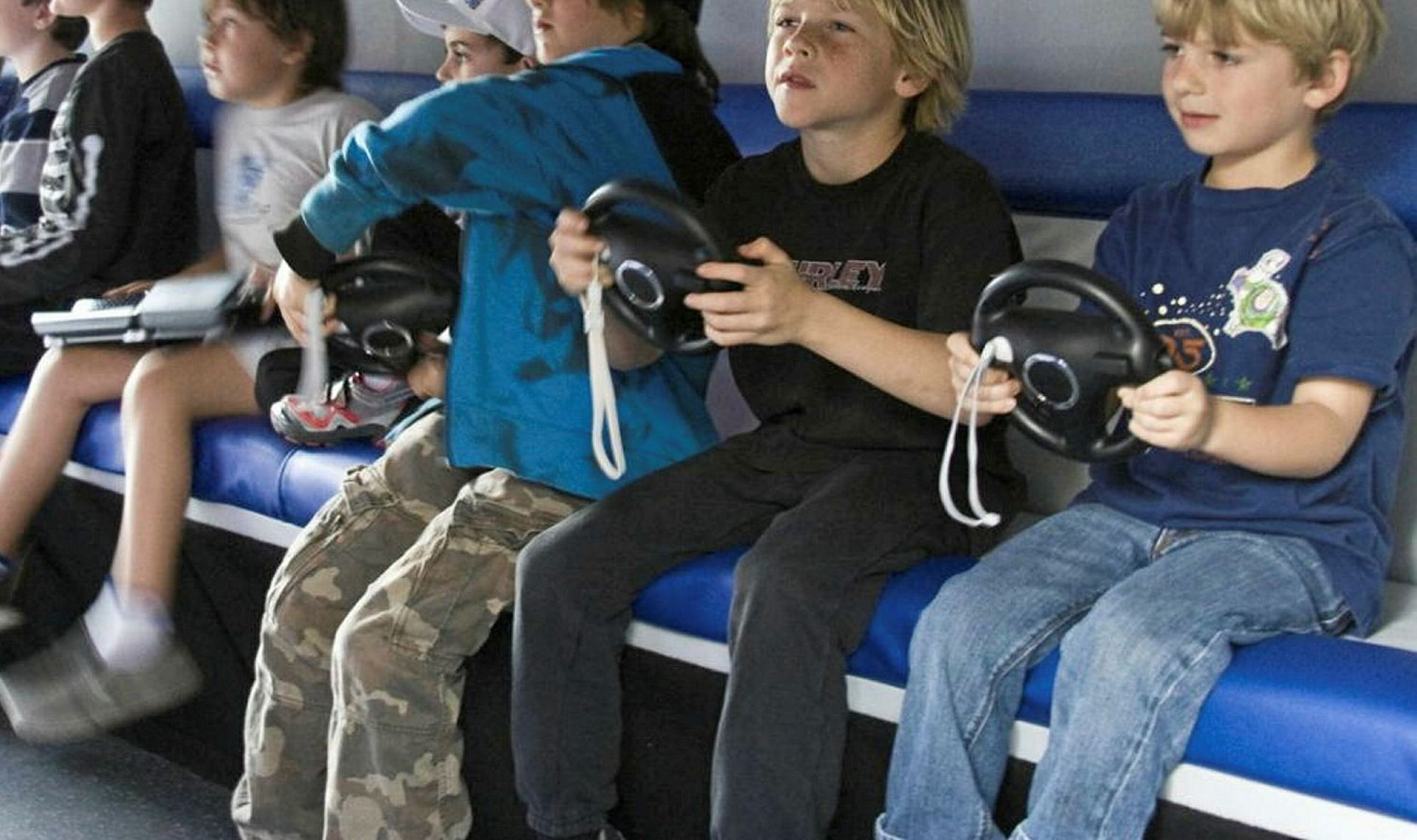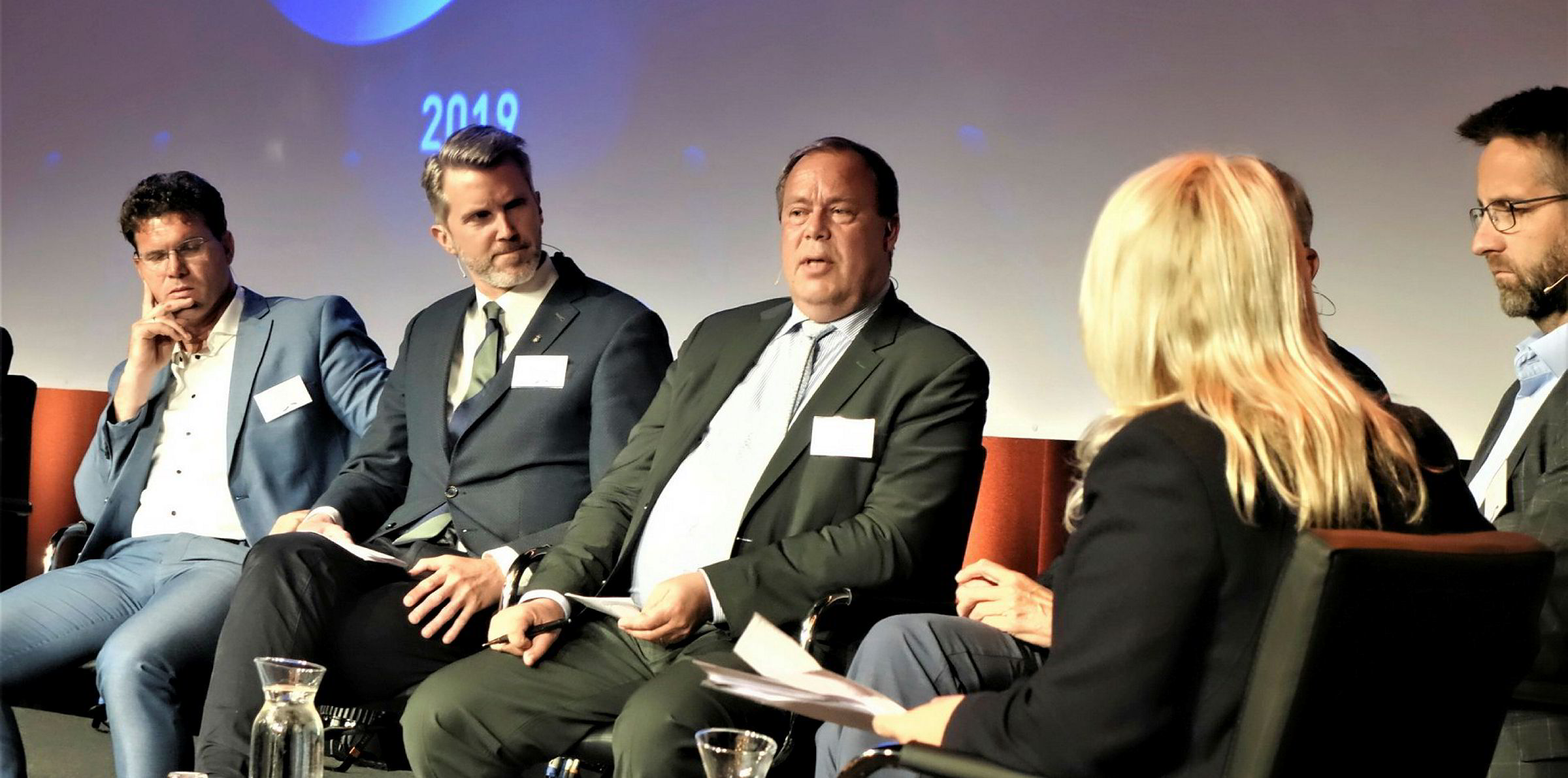All parents today must know what it’s like to watch a digitally-native youngster effortlessly prove their adroitness with technology.
For me, it was a day in March last year when schools were shuttered by snow. While I was helping put together a 36-page newspaper from my home office, my six-year-old son was working on 3D designs for a space station at a computer nearby.
I have enough trouble drawing stick figures, let alone to conceptualising anything in 3D, and here he was dizzyingly (from my perspective) rotating and adding components to his future Mars colony. Is there a #FeelingOld hashtag?
Gamers in the driving seat
Anyone who's seen this in their own family knows what Tom Eysto meant this week when he challenged the belief that men and women with experience at sea will be needed for shoreside centres that are expected to operate vessels remotely.
The managing director of Massterly, an autonomous-shipping joint venture between Norwegian shipping conglomerate Wilhelmsen and maritime technology company Kongsberg, instead looks to the droves of young people who are playing video games competitively, in what is known as e-sports, as potential new recruits.
As automation increasingly takes centre stage, the skill set for operating a vessel is changing — and there is a danger of being left behind
Tom Eysto
After all, these gamers are already adept at translating 3D actions mapped onto a 2D interface, he reasoned.
"These are the youngsters that we will probably use in the control room in the future," he said at the International Ship Autonomy and Sustainability Summit during Nor-Shipping in Oslo.
However, Eysto acknowledges that increasing autonomy in shipping will initially require traditional seafaring skills and experience.
Better work/life balance?
Fellow panellists said the transition will provide opportunities for mariners and they might even achieve a better work-life balance, as shoreside employment will not require them to leave their families for months at a time.

Operational centres will need staff with experience at sea, particularly when autonomous ships encounter problems and have to be operated manually at short notice.
Maintenance of ships may become more port based, opening more jobs ashore in that realm as well.
As automation increasingly takes centre stage, the skill set for operating a vessel is changing — and there is a danger of being left behind
As the pioneering, unmanned boxship Yara Birkeland prepares for launch next year, the industry is taking tenuous steps into sailing vessels without crew. But technology adoption is taking a hold like never before, and automation is creeping into shipping in other ways.
As automation increasingly takes centre stage, the skill set for operating a vessel is changing — and there is a danger of being left behind. After all, the new shoreside jobs generated by increasing autonomy will be highly-skilled officer roles.
'Deskilling' fears
These fears were echoed by Douglas Lang, group managing director for offshore at shipmanager Anglo-Eastern Group, who warned this week of a troubling trend of "deskilling" among vessels' crew.
As demand for onshore operating centres mean they are increasingly packed with navigational officers, chief engineers and Eysto's gamers, there is a danger that crew in less skilled positions may be the ones hit hardest by the rise of automation, just as has been seen in other industries.
The International Chamber of Shipping and the Hamburg School issued a study last year that sought to ease fears, particularly within seafarer unions, that autonomous shipping threatens jobs because of the new onshore positions that will emerge. But the study also served to highlight that it is primarily officers that have nothing to worry about.
For other crew there could be real consequences if they are to ensure a place in an industry.
As technology plays a growing role in shipping, unions, shipmanagers and other stakeholders should work together to ensure that today's labour force has opportunities to learn tomorrow's skills.
After all, many may need time to learn those digital skills that come naturally to the e-sport gamers at Fortnite tournaments.





